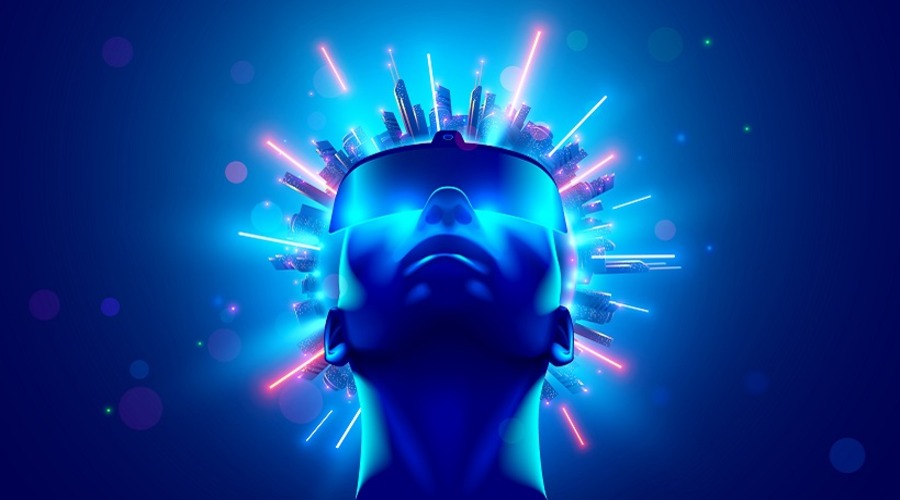The gaming industry has always been at the forefront of technological advancements, and with the emergence of the metaverse, it is taking a giant leap into the future. The metaverse is a virtual universe that is being built on top of the internet, where people can interact with each other in a shared virtual space. It is not just a concept for science fiction anymore, but a reality that is rapidly changing the gaming industry. In this article, we will explore how the metaverse is changing the gaming industry and what it means for the future of gaming.
What is the Metaverse?
The metaverse is a term coined by science fiction writer Neal Stephenson in his 1992 novel “Snow Crash.” It describes a shared virtual space where people can interact with each other in real time, using avatars and virtual reality (VR) technology. The metaverse is not just a single platform or game but a collection of interconnected virtual worlds that users can navigate through seamlessly.
The concept of the metaverse has gained a lot of traction in recent years, thanks to the development of VR technology and the rise of online gaming. It is not just limited to gaming but can also be used for socializing, shopping, education, and more.
How the Metaverse is Changing the Gaming Industry
- Immersive Gaming Experience
The metaverse transforms the gaming experience by creating a more immersive and interactive environment. Players can now enter a virtual world and interact with it as if it were real, using VR technology and haptic feedback devices. This allows for a more engaging and realistic gaming experience, where players can explore, interact with other players and objects, and complete tasks or missions.
- Cross-Platform Gaming
The metaverse also enables cross-platform gaming, where players can play together regardless of their device. This means that players can connect with each other from different platforms, such as PC, console, or mobile, creating a more inclusive and diverse gaming community.
- New Revenue Streams
The metaverse is also opening up new revenue streams for the gaming industry. With the ability to sell virtual items, in-game assets, and virtual real estate, gaming companies can generate more revenue and create new business models. Players can purchase virtual items using real money or cryptocurrencies, creating a new economy within the metaverse.
- Decentralized Gaming
The metaverse also makes decentralized gaming possible, where players can create their own games and virtual worlds. This allows for more creative freedom and innovation, as players can design and develop games without the need for a centralized authority or publisher. This also creates new opportunities for indie game developers to create and distribute their games without the need for a traditional publisher.
- Socializing and Community Building
The metaverse is also changing the way players socialize and build communities within games. Players can now connect with each other in virtual spaces and build relationships that extend beyond the game. This creates a more social and connected gaming experience where players can collaborate, compete, and learn from each other.
The Future of Gaming Industry with the Metaverse
The metaverse is still in its early stages of development, but it has already started to shape the future of gaming. As technology advances, the metaverse will become more immersive, interactive, and seamless, creating new opportunities for game developers, players, and investors. Here are some potential ways that the metaverse could transform the gaming industry in the future:
- Virtual Reality
The metaverse could become fully immersive, using virtual reality technology to create a more realistic and engaging gaming experience. This would require advancements in VR hardware and software, but it would enable players to enter a virtual world and interact with it as if it were real.
- Blockchain Technology
The metaverse could also use blockchain technology to create a more secure and transparent economy within the virtual world. This would enable players to own and trade virtual assets without a centralized authority securely. It would also provide new opportunities for developers to create blockchain-based games and applications.
- Artificial Intelligence
The metaverse could also incorporate artificial intelligence (AI) to create more realistic and intelligent NPCs (non-playable characters). This would enable NPCs to learn and adapt to player behaviour, creating a more personalized and challenging gaming experience.
- Personalization
The metaverse could also allow for more personalization and customization within games. Players could design and create their own avatars, virtual homes, and virtual items, giving them a sense of ownership and control within the virtual world.
- Education and Training
The metaverse could also be used for education and training, creating virtual simulations and learning and skill development environments. This would enable students and professionals to learn more engaging and immersively, using VR technology and interactive experiences.
Challenges and Risks
While the metaverse presents many exciting opportunities for the gaming industry, some challenges and risks must be addressed. Here are some of the challenges and risks associated with the metaverse:
- Accessibility
The metaverse could potentially exclude players who do not have access to the necessary technology or internet connection. This could create a digital divide, where only a certain group of people can access the virtual world.
- Security
The metaverse could also be vulnerable to security threats like hacking and cyber-attacks. This could compromise the virtual economy and create trust issues among players and investors.
- Regulation
The metaverse could also face regulatory challenges, as it is new and uncharted territory. Governments and regulators may need to create new laws and policies to address the legal and ethical issues that arise within the virtual world.
- Addiction
The metaverse could also potentially create addiction and mental health issues, as players may become too immersed in the virtual world and neglect their real-life responsibilities and relationships.
Conclusion
The metaverse is a game-changer for the gaming industry, creating new opportunities for innovation, revenue generation, and community building. As technology advances, the metaverse will become more immersive, interactive, and seamless, transforming the gaming experience in ways we can’t even imagine. However, some challenges and risks must be addressed to ensure the metaverse is accessible, secure, and ethical. Overall, the metaverse is a promising development for the gaming industry, and it will be exciting to see how it evolves and shapes the future of gaming.




